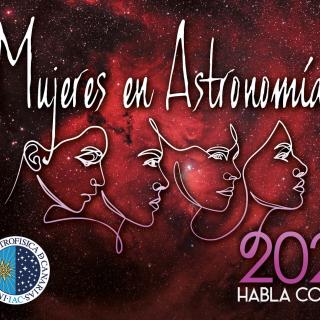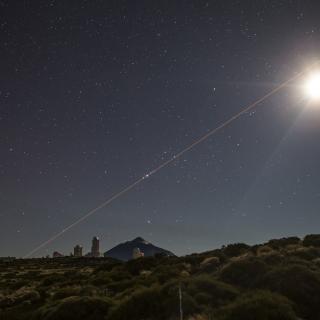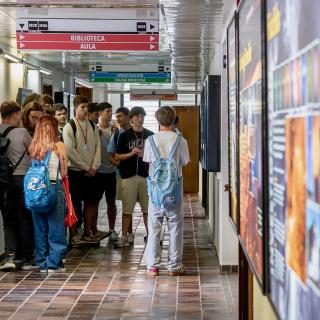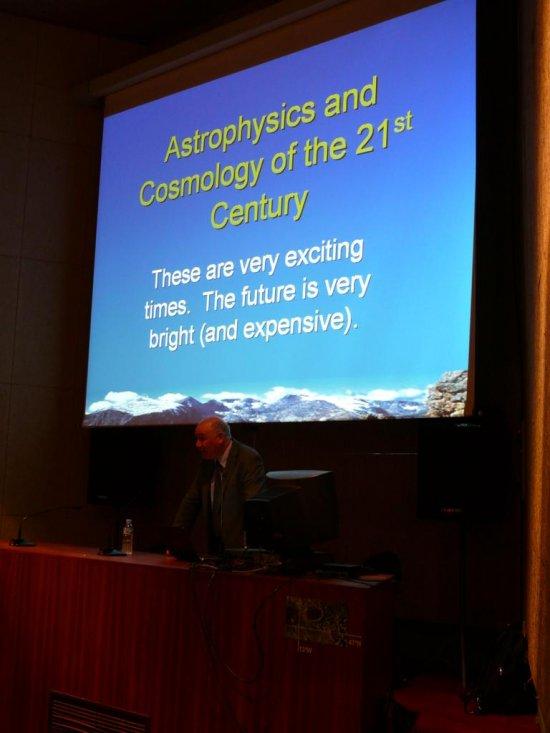It may interest you
-
 El Instituto de Astrofísica de Canarias (IAC) celebra en 2026 la octava edición consecutiva del proyecto Habla con Ellas: Mujeres en Astronomía, una iniciativa de divulgación científica y educación en astronomía que se desarrolla en el marco del Día Internacional de la Mujer y la Niña en la Ciencia (11 de febrero). Dirigido a la comunidad educativa, el proyecto tiene como objetivo visibilizar el papel de las mujeres en la astronomía y la astrofísica, crear referentes femeninos en ciencia y tecnología e inspirar vocaciones científicas, especialmente entre niñas y jóvenes interesadas en lasAdvertised on
El Instituto de Astrofísica de Canarias (IAC) celebra en 2026 la octava edición consecutiva del proyecto Habla con Ellas: Mujeres en Astronomía, una iniciativa de divulgación científica y educación en astronomía que se desarrolla en el marco del Día Internacional de la Mujer y la Niña en la Ciencia (11 de febrero). Dirigido a la comunidad educativa, el proyecto tiene como objetivo visibilizar el papel de las mujeres en la astronomía y la astrofísica, crear referentes femeninos en ciencia y tecnología e inspirar vocaciones científicas, especialmente entre niñas y jóvenes interesadas en lasAdvertised on -
 The Instituto de Astrofísica de Canarias is designing and developing, as ordered by the Spanish company Thales Alenia Space , the adaptive optics which will be a parto f the ground station for the GARBO project, the first Spanish geostationary system for distributing quantum keys by satellite. This is a decisive step in the field of secure quantum communication on a large scale, and will strengthn the position of Spain, and of Europe at the Forefront of this technology. Within the framework of the project the IAC will lead the development of the adaptive optics systems, and will participateAdvertised on
The Instituto de Astrofísica de Canarias is designing and developing, as ordered by the Spanish company Thales Alenia Space , the adaptive optics which will be a parto f the ground station for the GARBO project, the first Spanish geostationary system for distributing quantum keys by satellite. This is a decisive step in the field of secure quantum communication on a large scale, and will strengthn the position of Spain, and of Europe at the Forefront of this technology. Within the framework of the project the IAC will lead the development of the adaptive optics systems, and will participateAdvertised on -
 El Instituto de Astrofísica de Canarias organiza visitas guiadas y participa en la Feria de las Vocaciones Científicas de Canarias dentro de la Noche Europea de los Investigadores de la Macaronesia El Instituto de Astrofísica de Canarias (IAC) participará en MacaroNight 2025, la Noche Europea de los Investigadores e investigadoras de la Macaronesia, con dos actividades dirigidas a estudiantes de diferentes niveles educativos para acercar la astrofísica y fomentar las vocaciones científicas entre la juventud canaria. Visitas guiadas a la sede central del IAC Los días 22 y 23 de septiembre, elAdvertised on
El Instituto de Astrofísica de Canarias organiza visitas guiadas y participa en la Feria de las Vocaciones Científicas de Canarias dentro de la Noche Europea de los Investigadores de la Macaronesia El Instituto de Astrofísica de Canarias (IAC) participará en MacaroNight 2025, la Noche Europea de los Investigadores e investigadoras de la Macaronesia, con dos actividades dirigidas a estudiantes de diferentes niveles educativos para acercar la astrofísica y fomentar las vocaciones científicas entre la juventud canaria. Visitas guiadas a la sede central del IAC Los días 22 y 23 de septiembre, elAdvertised on
